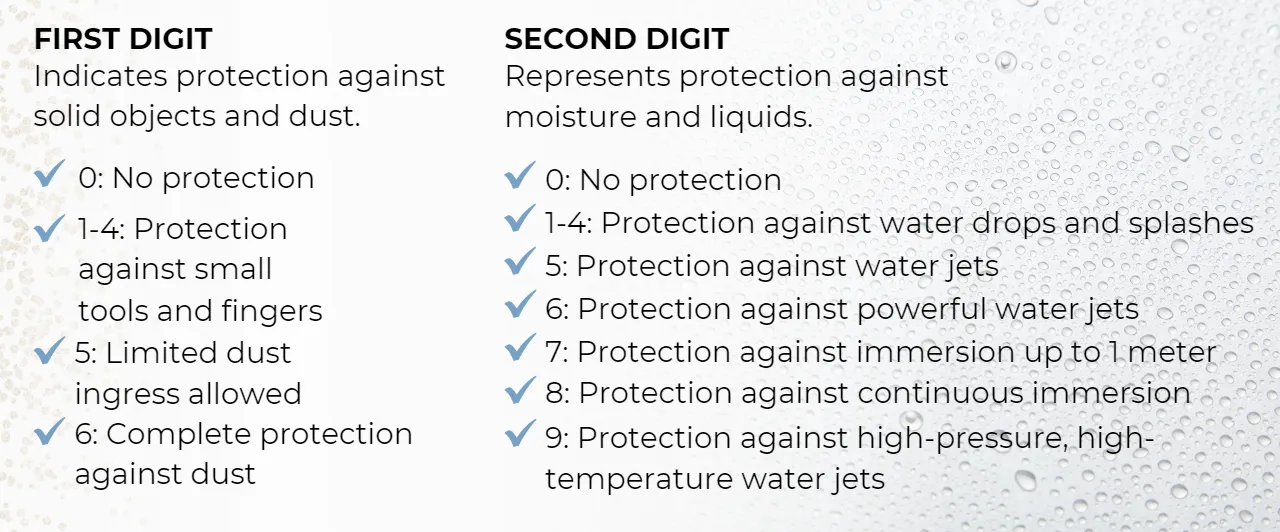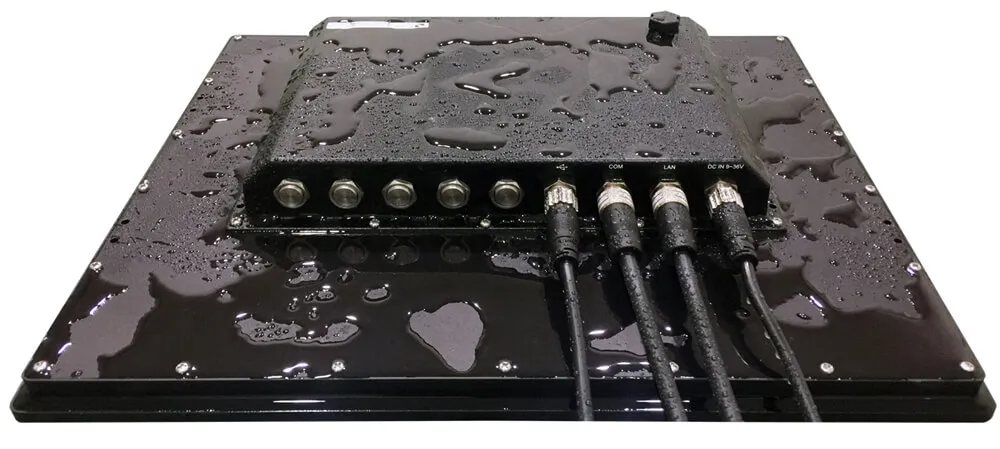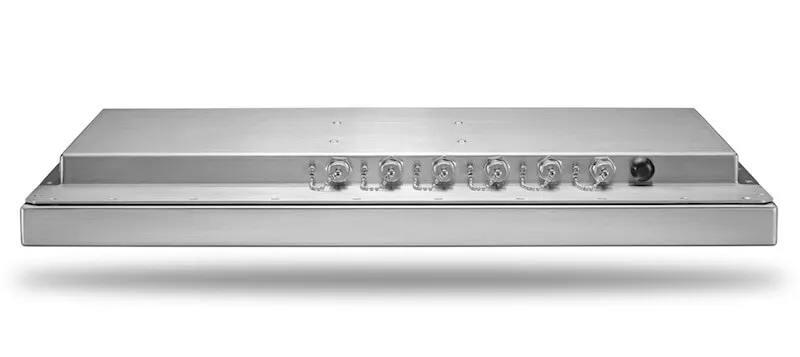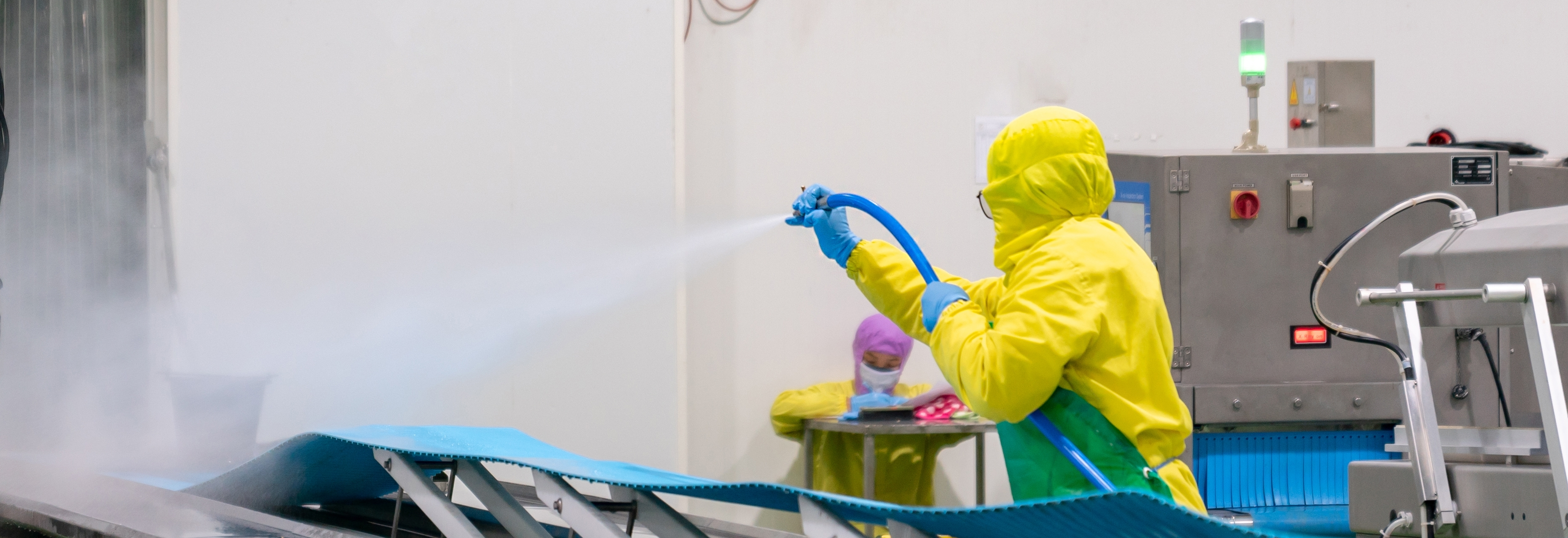Understanding IP Ratings for Panel PCs: A Deep Dive into Protection and Reliability
Posted on 13/08/2024
When selecting a panel PC for demanding environments, one of the most critical factors to consider is its Ingress Protection (IP) rating. This rating determines how well the device is protected against the intrusion of solid particles and liquids, which is crucial for its performance and longevity.
In this blog, we will explore the various IP ratings, from IP65 to IP69K, and explain what they mean for you and your business. We will also take a closer look at how to choose the right rating for your specific needs and why this is so important to avoid downtime and ensure that your equipment functions optimally, even in the most challenging environments.
What is an IP Rating?
Ingress Protection (IP) ratings are an international standard that defines the level of protection that electrical devices offer against the intrusion of solid objects and liquids. The rating is represented by two digits:

For example, an IP65 rating means that the device is completely protected against dust and can withstand water jets from any direction, making it suitable for many industrial applications.
Common IP Ratings for Panel PCs
- IP65:
Provides complete protection against dust (dust-tight) and is protected against water jets from any direction. This rating is ideal for general industrial applications where protection from dust and water splashes is necessary. - IP67:
Offers full protection against dust and temporary submersion in water (up to 1 meter depth for 30 minutes). This rating is suitable for environments where equipment might be exposed to temporary water contact, such as outdoor installations. - IP69K:
The highest level of protection, ensuring the device is dust-tight and resistant to high-pressure, high-temperature water jets. This rating is perfect for environments where intensive cleaning is required, such as in the food processing and pharmaceutical industries.
 |  |
How to Choose the Right IP Rating for Your Panel PC
Selecting the correct IP rating for your panel PC depends on the environment in which it will be used. Here are some factors to consider:
- Type of Environment:
Will the device be exposed to dust, dirt, or liquids? In dusty environments or where water splashes are common, a higher IP rating like IP65 or IP67 is preferable. - Cleaning Requirements:
If the equipment needs to be regularly cleaned with high-pressure water jets, such as in food production, IP69K is the best choice. - Weather Exposure:
For outdoor use, where the device may be exposed to rain and other weather conditions, IP67 should be the minimum rating, but IP69K might be necessary in extreme cases.
Benefits of Choosing the Right IP Rating
Choosing the appropriate IP rating for your panel PC offers several benefits:
- Extended Lifespan:
By protecting the device from the intrusion of dust and liquids, you can extend its lifespan and reduce the need for repairs. - Reduced Downtime:
A properly protected device is less likely to malfunction, leading to fewer downtimes and higher productivity. - Safety:
In environments where the equipment might come into contact with water or dust, a high IP rating helps prevent short circuits and electrical hazards.
Conclusion
Understanding and applying the correct IP rating for your panel PCs is crucial to ensuring their performance and durability in demanding environments. Whether you are working in a dusty factory setting, an outdoor installation, or a hygiene-critical facility, there is an IP rating that fits your needs.
Want to learn more?
Contact us for advice on how to optimize your panel PCs for your specific applications, or explore our other articles on durability and safety in industrial environments.

